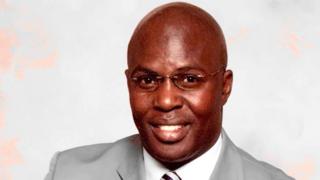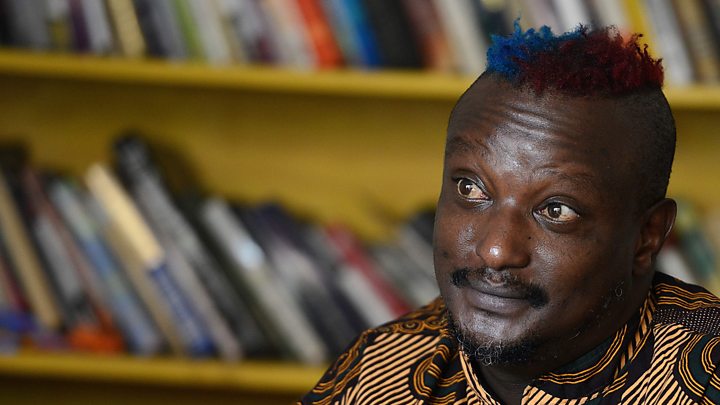UNC's Roy Williams recalls first encounter with Michael Jordan - 247Sports
UNC's Roy Williams recalls first encounter with Michael Jordan - 247Sports |
| UNC's Roy Williams recalls first encounter with Michael Jordan - 247Sports Posted: 27 Apr 2020 06:00 PM PDT In a time where North American sports are indefinitely on hiatus, former NBA star Michael Jordan has once again found his name frequenting national headlines. You can go ahead and thank ESPN for that, with the network currently airing The Last Dance -- a documentary miniseries focusing on Jordan and the 1997–98 Chicago Bulls -- on Sunday nights. Of course, it was North Carolina where it all began for Jordan on the hardwood. Though born in New York City, Jordan spent the majority of his childhood in Wilmington, North Carolina and ultimately went on to play college basketball for Dean Smith at the University of North Carolina for three seasons before being drafted No. 3 overall by the Bulls in 1984. But what about Jordan's high school years. While every basketball fan has heard the story of Jordan failing to make the Laney High School varsity basketball team as a sophomore -- contrary to popular belief, he was never actually "cut" from the team -- there are plenty off other stories to be told from that era of his career. Current UNC men's basketball head coach Roy Williams, who was an assistant for the Tar Heels during Jordan's recruitment and college career, joined The Herd on Monday in which he recalled his first interaction with Jordan decades ago at a summer basketball camp hosted by the program. Below is what Williams had to say, but long story short, it was clear to Williams rather quickly that Jordan wasn't your average basketball player.
"You watch The Last Dance and all those things, but you forget about the first part of it. He wasn't a bad high school player. He just didn't make varsity as a sophomore, they kept him on the JV team ... we had camp going on and Eddie Folger and I would call around the state and try and get the best players we could come to our camp. We said the bad news was that you had to pay. We don't let anybody come for free, you can't do that. But on Sunday afternoon of the first week that Michael was in camp, I was opening up Carmichael Arena at that time and kids were coming down to play pickup (games), and the counselor would bring over about 30 kids at a time. Then they'd go and another one would show up, so you had them for about 20 minutes, because not every kid was going to get to play in Carmichael, and that was our home arena at the time. We were trying to let the little kids get a chance to play in there as well. (Michael) came over and I thought 'wow' -- I told him 'I want you to stay with the next group' and I told his counselor to take that group back and then Michael stayed for a second 20-minute period then he went back to the dorm ... then all of a sudden two groups later, he shows up again. He says "Nah, I just love to play." So we kept him down there, and -- I'm not joking whatsoever -- I told Eddie that night "I think I've just seen the best 6-foot-4 high school player I've ever seen." And I gave him a ride back to the dorm. I didn't make him walk back in the summer heat ... He was the most driven person I've ever known, most focused I've ever known and the greatest competitor I've ever known." -- Roy Williams. At North Carolina, Jordan averaged 13.5 points as a freshman, 20.0 points as a sophomore, and 19.6 points as a junior. He was a career 54.0 percent shooter from the field and averaged 5.0 rebounds, 1.8 assists, and 1.7 assists over his three seasons in Chapel Hill. Follow that up with a legendary NBA career that included 6 NBA titles with Chicago and as many Finals MVP Awards, and Jordan has firmly etched his place as one of the most iconic athletes in North American pro sports history. |
| Ken Walibora: How Kenya's 'king' of Swahili writing inspired me - BBC News Posted: 26 Apr 2020 04:05 PM PDT  Image copyright Hezekiel Gikambi Image copyright Hezekiel GikambiThe Kenyan author Ken Walibora who was buried last week left behind a generation of fans who read his books in Swahili classes, including the BBC's Basillioh Mutahi. Prof Walibora was renowned for promoting Swahili, the national language he used in writing his books. In 2018 he expressed concern that some schools in Kenya had notices reading: "This is an English-speaking zone". He asked the ministry of education why it would allow students to be barred from speaking in Swahili, when it was a national language. The author said this was a sign of brainwashing and neo-colonialism. You would not find another country that would choose a foreign language over the language of its people, he said. GETTY Swahili - a quick guide
His most prominent book was his first novel Siku Njema which was later translated to English as A Good Day. It was used as a set book in high schools around the country for many years. Many Kenyans who read it in school have spoken about how the novel, a tale of triumph over adversity, helped them love Swahili literature - which is something Kenyans often find difficult to do. Our neighbours in Tanzania are supposed to be the most proficient speakers of this language used as a lingua franca by around 100 million people across East Africa. Prolific writerProf Austin Bukenya, one of the pioneering African scholars of English and literature in East Africa, from Uganda, argued that Prof Walibora was the "king" of Kenyan Swahili literature. Who was Ken Walibora?
He was a prolific writer- between 1996, when Siku Njema was published, and the day he died, he had more than 40 books to his name in varied genres - novels, short stories, plays and poetry. He has been described as a man who was always writing, and writing best sellers. Even towards his unforeseen death, he had at least one book that was nearly ready, which is now due to be published posthumously. Other than Prof Walibora's debut novel, he had another novel that was read as a national set book for Kiswahili literature in schools, Kidagaa Kimemwozea. But it was that first book, Siku Njema, that really endeared him to young readers. I was one of them. I wanted to become the writer that he was, as well as the fictional main character who was almost like a role model. Aspirational story-tellingI remember reading that book, with a cover illustration of a silhouetted man looking into the distance, in just one evening about 20 years ago, on the day it was issued in class as our high school literature text. In the two years that followed, we would explore it in detail, studying the themes, stylistic devices and all. But what resonated most with me was the aspirational aspect of his story-telling, which almost inspired you to see the possibilities to do better not just in school, but in life. But other than the analogies of hope that I identified with, I found it an easy read, with its vivid imagery and poetic language. I identified with the struggles of the book's main character, Msanifu Kombo, an ill-treated child who grew up without his parents, and who later took on a perilous journey from Tanzania to find his father in Kenya. In the book, Msanifu Kombo is a brilliant student of the Swahili language, at one point taking the prize for an essay he wrote for a school competition. His schoolmates nickname him Kongowea Mswahili, the name of the key character in his prize-winning essay. Like Mswahili, I came to love Swahili in school, which inspired me to write a manuscript in Swahili of my own - which I have kept ever since. And I immersed myself into learning more of the language, which helped me earn top grades in the language for the rest of my high school life. I was also nicknamed Kongowea Mswahili. Working with my heroLater in life, our paths crossed at the Nation Media Group in Nairobi, where we both worked as journalists. In a way, I was proud to be working with a man, who in my teenage years, was my hero. Though we were both journalists now, seeing him as a hero never really went away, as he was this man who kept on writing books - catching up with him seemed an unachievable goal. Yet I was often struck by the realisation that his personality was different from the person I imagined he was, many years earlier. He was an ordinary man who easily struck up conversations with colleagues despite his fame. Looking back, that feeling of wanting to be a writer like him has lingered on, but in the business of a newsroom and working for different publications, I never let him know how much he inspired me - something I now regret. When the announcement of Prof Walibora's death came, many Kenyans were shocked. Many paid tributes to an author who they had known personally, at work, or though the various books he had written. Douglas Mutua, a writer and lecturer in the US who was once Prof Walibora's colleague, remembered the author as a person who nurtured talent. Mr Mutua told the BBC's Peter Mwai that Prof Walibora loved three things: Swahili, humanity and football. On Twitter, a Kenyan described Prof Walibora as Kenya's William Shakespeare. It was an accolade I had never heard, which perhaps he would not have wanted, being a modest person who was never keen to flaunt his envied position as a celebrated author. "There are people who are worth remembering and who can be remembered, but I'm not one of them, I'm not among them," he wrote in his introduction to his autobiography Nasikia Sauti Ya Mama (I Hear My Mother's Voice). "If by writing this [autobiography] I will have shown an example of how to write an autobiography, and not an example how to live a life, then I will have achieved my goal," he added. You may also be interested in... BBC Africa staff read extracts from Binyavanga Wainaina's famous satirical essay How to Write about Africa, in tribute to the late writer.  Media playback is unsupported on your device |
| You are subscribed to email updates from "famous short story,short stories for high school" - Google News. To stop receiving these emails, you may unsubscribe now. | Email delivery powered by Google |
| Google, 1600 Amphitheatre Parkway, Mountain View, CA 94043, United States | |



Comments
Post a Comment